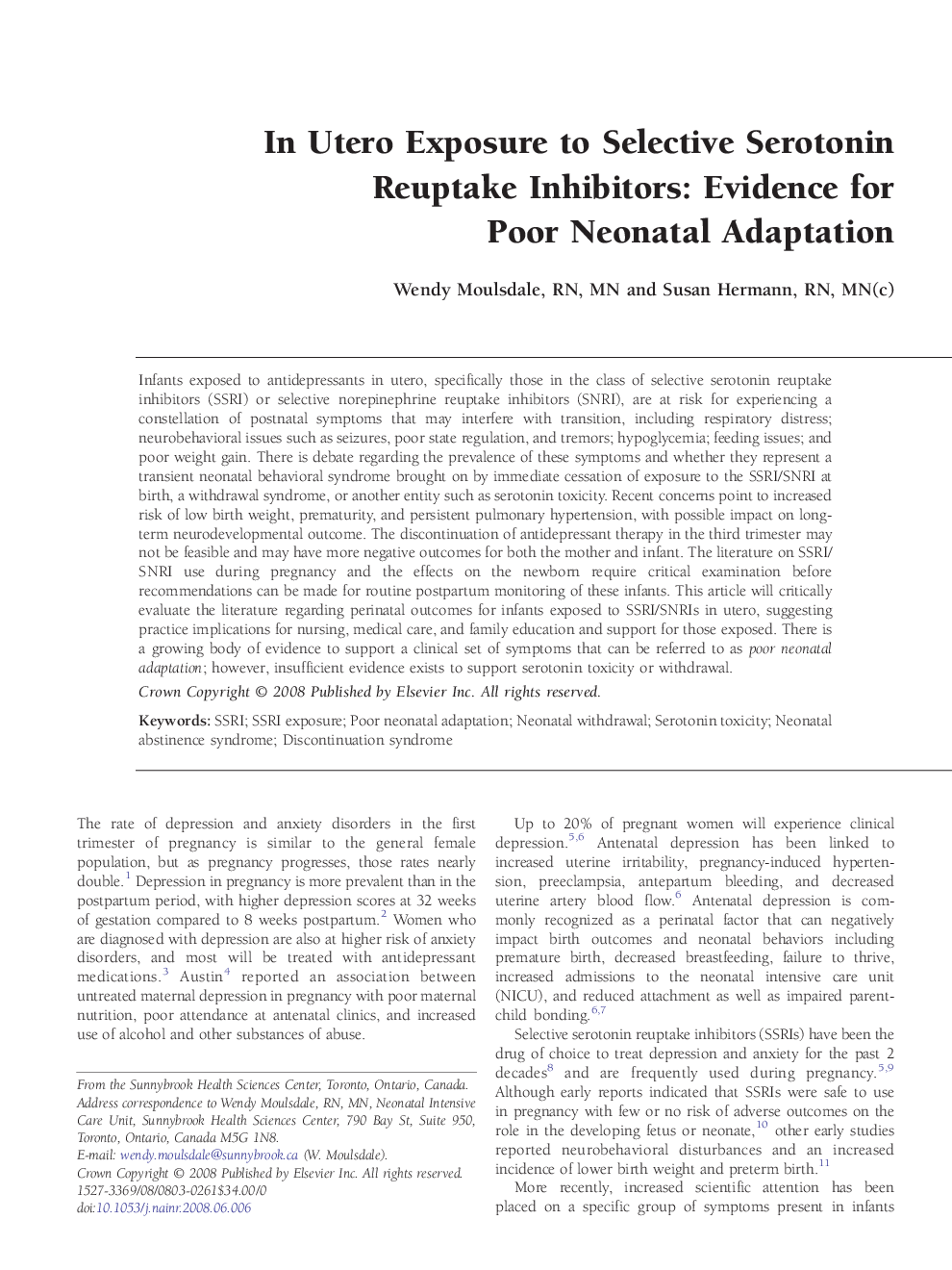| Article ID | Journal | Published Year | Pages | File Type |
|---|---|---|---|---|
| 2673872 | Newborn and Infant Nursing Reviews | 2008 | 8 Pages |
Infants exposed to antidepressants in utero, specifically those in the class of selective serotonin reuptake inhibitors (SSRI) or selective norepinephrine reuptake inhibitors (SNRI), are at risk for experiencing a constellation of postnatal symptoms that may interfere with transition, including respiratory distress; neurobehavioral issues such as seizures, poor state regulation, and tremors; hypoglycemia; feeding issues; and poor weight gain. There is debate regarding the prevalence of these symptoms and whether they represent a transient neonatal behavioral syndrome brought on by immediate cessation of exposure to the SSRI/SNRI at birth, a withdrawal syndrome, or another entity such as serotonin toxicity. Recent concerns point to increased risk of low birth weight, prematurity, and persistent pulmonary hypertension, with possible impact on long-term neurodevelopmental outcome. The discontinuation of antidepressant therapy in the third trimester may not be feasible and may have more negative outcomes for both the mother and infant. The literature on SSRI/SNRI use during pregnancy and the effects on the newborn require critical examination before recommendations can be made for routine postpartum monitoring of these infants. This article will critically evaluate the literature regarding perinatal outcomes for infants exposed to SSRI/SNRIs in utero, suggesting practice implications for nursing, medical care, and family education and support for those exposed. There is a growing body of evidence to support a clinical set of symptoms that can be referred to as poor neonatal adaptation; however, insufficient evidence exists to support serotonin toxicity or withdrawal.
